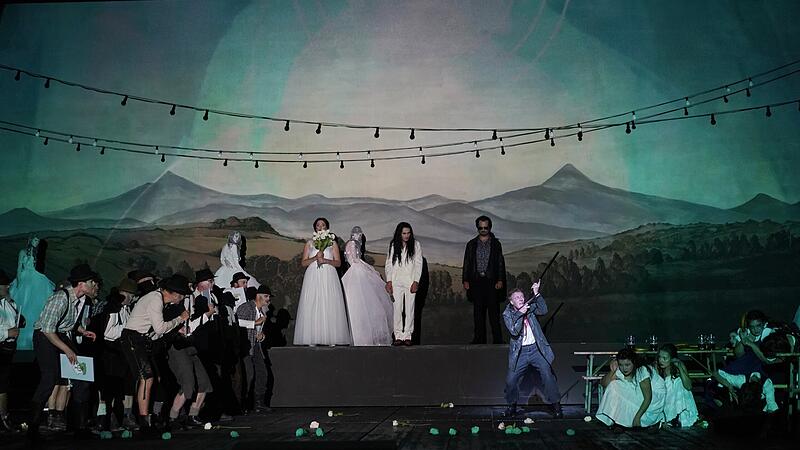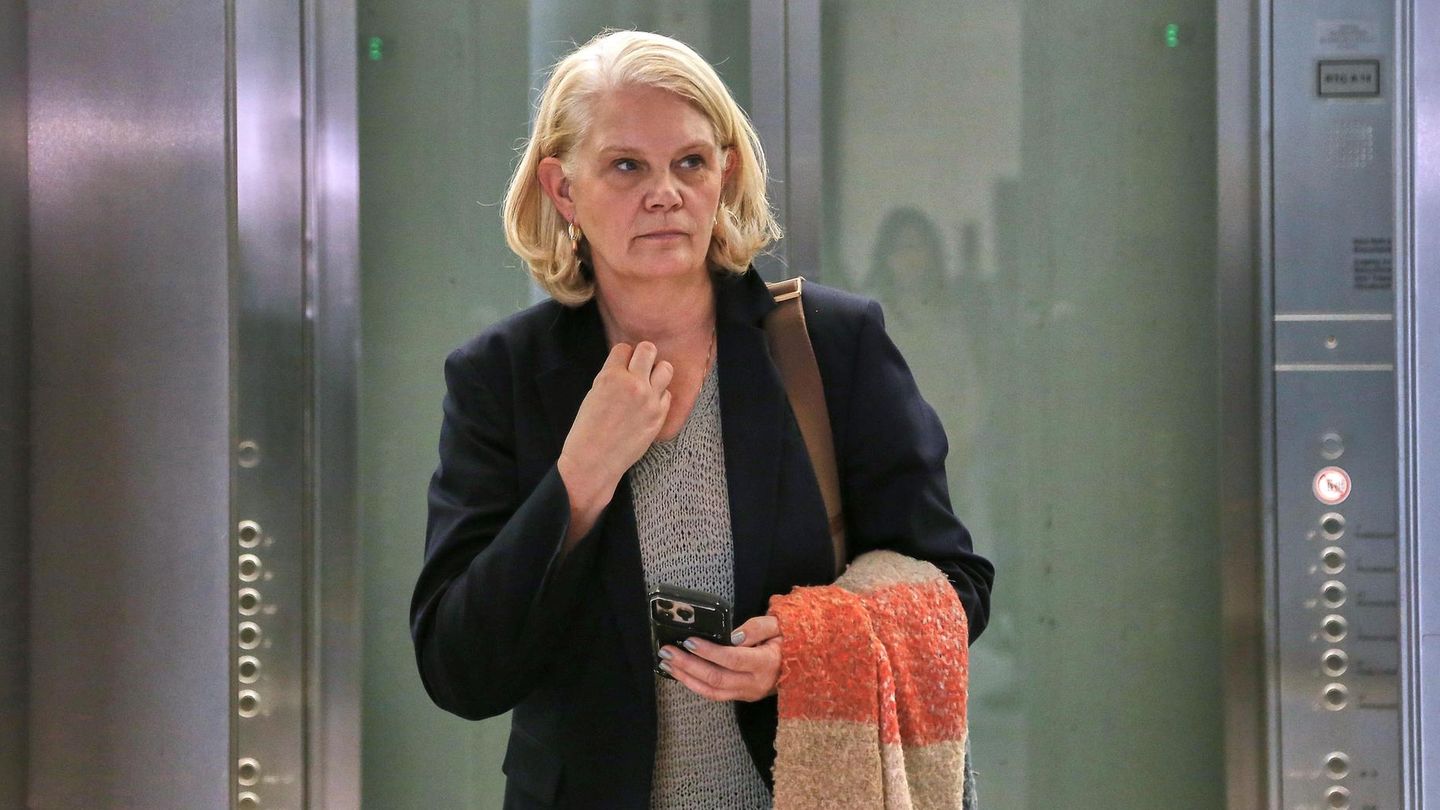Image: Photo: Reinhard Winkler
Carl Maria von Weber’s opera “Der Freischütz” doesn’t have an easy time today – misunderstood as a romantic horror fairy tale, misused as a loyal German song of praise for the hunters, viewed as a somewhat quirky piece of drama in which a deus ex machina (the hermit) is needed to control the cart to pull out of the mud.
What is usually overlooked is that the music was revolutionary for its time, especially in those areas where the libretto looks into the abyss of human emotions, revealing the hidden evil in everyone. This is exactly where host Hermann Schneider comes into play with his production. He thus avoids all those folksy elements and turns Freischütz into the psychological thriller that it actually is – had the genre already existed back then. Evil in the form of the “black hunter” Samiel is always present; he drags all characters, with the exception of the inviolably pure Agathe, to their destruction. This devil doesn’t even stop at the church, because the unavoidable hermit is not a saint, but a figure controlled by the dark forces.
It also becomes clear why the fear of evil stirred up by the church becomes a powerful means of repression and at the same time evil controls those clerics who exercise this power in order to keep the sheep tame. Samiel is not only in the role of the hunter boy Caspar, but also in Agathe’s young relative Ännchen, who after a presumably devilish night looks like a zombie – greetings from the exorcist! – wanders around. Strong images emerge in the furnishings designed by Falko Herold; a cube of pure white is pushed into the gloomy hall of an abandoned hotel. That sphere of innocence of Agathe, which even the devil cannot soil with blood when he desecrates Ännchen. Hermann Schneider also gives his Freischütz a framework that begins with Caspar’s death and allows the story to be reviewed as a flashback of his evil life. Almost like Goethe’s Mephistopheles – some verses have slipped into the new dialogue version – evil is very sympathetically omnipresent and controls the destruction perfectly.
Free from any pseudo-idyll
But Markus Poschner also sets out musically with the brilliantly playing Bruckner Orchestra in the revolutionary structure of the score. Those earthy, black sound combinations invented by the composer, those disturbing accents that disrupt the seemingly undisturbed, beautiful lines, are aimed precisely at the psychological thriller that von Weber may have had in mind. Perhaps with the hope of salvation through a heaven, which Schneider very plausibly denies him.
What is also fascinating is how Poschner analytically examines the score and, for example, creates a gripping mood for the first Agathen aria and wonderfully eliminates the pseudo-idyllic. There is also a singing ensemble, most of which carry out this adventure journey magnificently. First and foremost, Erica Eloff as the outstanding Agathe, who enriches her arias with many facets without slipping into the sphere of the simple forester’s daughter. Your faith comes from the purest of souls.
Max also has this, to whom Timothy Richards skillfully and harmoniously lends his finely-timbered tenor. Fenja Lukas is a terrific little girl who convincingly transforms from an over-excited girl to a not without danger obsessed person and her arias are manically scratchy and impressive.
Michael Wagner’s Caspar is extremely intense vocally, but somewhat limited in his impact by the constant presence of evil. Demonic in his ungodly mission: Dominik Nekel as a hermit who is also controlled by evil. Adam Kim (Ottokar) and Markus Raab (Cuno) led the rest of the ensemble and the choir and extra choir, which were not always rhythmically precise. Sven Mattke is great, giving the many figures of evil an incredible presence and turning the evening into an event.
Conclusion: A radically new, but highly intelligent and compelling look at von Weber’s Freischütz that was not only appreciated by the audience.
more from culture
He saw himself as Bruckner’s successor
These are the best press photos of 2023
When “The Final Countdown” is played during the beheading
Walter Sittler: “Anyone who excludes leaves the soil of democracy”
: Nachrichten
I am an author and journalist who has worked in the entertainment industry for over a decade. I currently work as a news editor at a major news website, and my focus is on covering the latest trends in entertainment. I also write occasional pieces for other outlets, and have authored two books about the entertainment industry.




